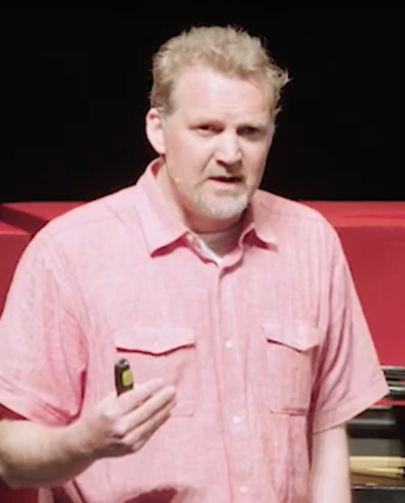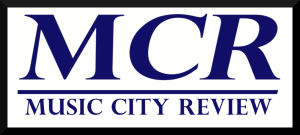Boundless Beats: Encouraging New Perspectives Between Music, Composer, and Audience

Boundless Beats, described on its website as “a casual, public sharing of collaborations and creations,” unfolded on May 3, 2024, from 3:30 p.m. to around 5:00 p.m. at the Nashville Public Library in the heart of downtown. The audience was treated to an eclectic program of performances by a dynamic and passionate ensemble of artists from Intersection and Southern Word, promising a one-of-a-kind experience.
Led by Artistic Director Kelly Corcoran, Intersection is a contemporary music ensemble that, since 2014, has sought to challenge traditional concert experiences by holding events in unexpected performance venues—something other than formal recital spaces or concert halls—while forging collaborative partnerships fusing music with dance, lighting and other technical staging, image projection, and spoken word. Intersection commissions new compositions and brings both established and newly budding contemporary composers.
Executive Director Benjamin Smith oversees Southern Word. Emphasizing “Voice, Literacy, Community, and Leadership,” Spoken Word is dedicated to spoken-word education through residency and afterschool K-12 programs and partnering with the Nashville School of the Arts Writing Conservatory, aligning spoken word activities with school curricula. Southern Word allies with Nashville-area university programs, elevating student success in higher education. Southern Word cultivates the intersection between words and music, offering music productions and songwriting programs. The organization’s Youth Laureate Program elevates young voices at major civic events and Write with Pride “[….] cultivates barrier-breaking spaces for LGBTQ+ youth to build community and provide resources that foster wellbeing.”
The event itself—Boundless Beats—was held in a creative studio space inside the Nashville Public Library (NPL) called Studio NPL— as the library describes it on their website: “[….] an innovative, technology-driven learning environment for teens aged 12–18” that offers workshops on music and audio projection, photography, film and media production, and STEM literacy.

Performances to note: First, sound engineer, recording artist, and percussionist Lawson White performed a modified solo version of his composition “White,” which featured an on-the-spot created collection of looped tracks. Audiences witnessed White’s skill as he built his composition using electronically generated rhythmic motifs, or “beats,” natural vocals, and a mallet-keyboard synthesizer (MalletKat)—genuinely stunning! White teamed up with spoken word and budding rap artist Christian Ezell, who presented their recorded track “Weeds,” demonstrating an intersection between contemporary percussion composition and rap. For “Weeds,” White and Ezell drew inspiration partly from composer Steve Reich, whose approach resonates with similar goals of Boundless Beats, which is to bridge spaces between composition, composer, and audience.
Other performances include singer/songwriter Elijah Ware and violinist Annaliese Kowert presenting their collaboration “Blooming,” a beautiful song inspired by the composers’ sense of self-cultivation, expressing the optimism that often accompanies maturity and growth. “Blooming’s” relatable and meaningful lyrics were beautifully framed by Ware’s vocal sensitivity and reinforced by Kowert’s gorgeous tone. Also, budding songwriter/singer Soteria Francis impressively sang her original song, “Hopeful Romantic,” with an angelic, head-voice backup vocal sung by Michelle Greene. Additionally, there were other beautiful performances by cellist/composer Kaitlyn Raitz and pianist/composer Alessandra Volpi.
A common thread between the comments given by organization leaders, presenters, and performers is their collective goal to reach more meaningful connections between the performance of musical works, performers, and audiences. I witnessed a pleasant subversion of traditional performance practices typical in contemporary/art music circles. First, I experienced a diverse representation of musical offerings, drawing from both “classical” and pop-music delineations. This notion was evident in the combinations of instruments, range of technologies used, forms of production, and musical styles. I was moved by the level of positive support given among the performers between themselves and their mentors. Vocal praise was exchanged from the audience to the performers or collaborators to each other as they performed. The sense of community formed between Intersection and Southern Word artists was transparent to anyone in attendance. The event was inspiring, and I encourage anyone to seek out future events.



